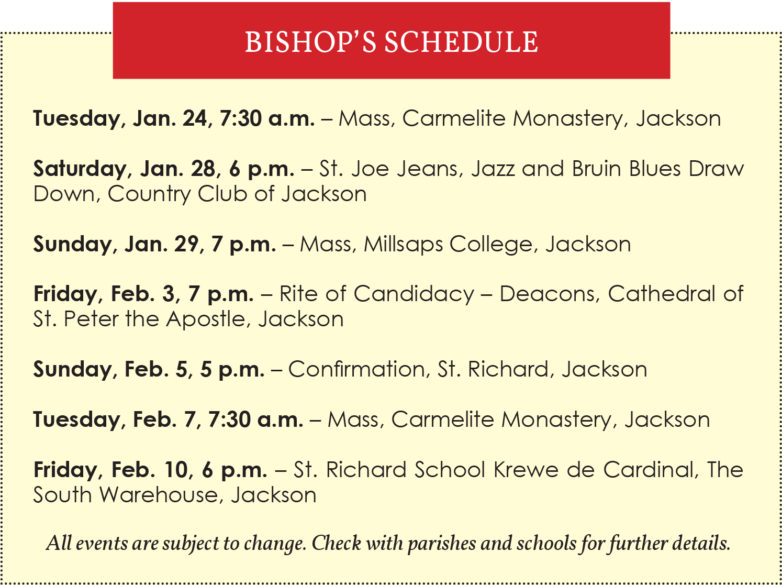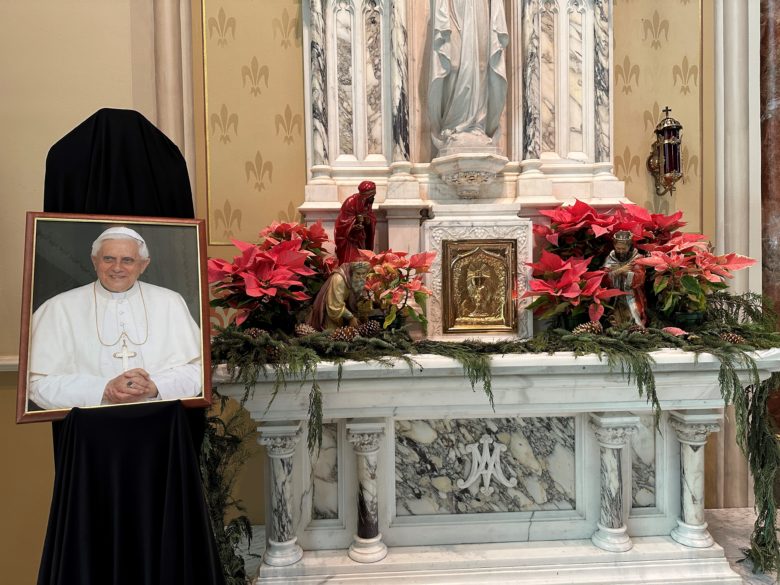By Bishop Joseph R. Kopacz, D.D.
On the weekend of Jan. 21-22 the Catholic Church will mark for the fourth consecutive year, Sunday of the Word of God. Pope Francis dedicated the third Sunday in January on the feast of St. Jerome, Sept. 30, 2019, as such with his Apostolic Letter, Aperuit Illis taken from the Emmaus story when the two disciples recognized the risen Lord in the breaking of the bread and how with hearts burning, he “opened the Scriptures for them” as they walked along the road.

We celebrated the culmination of the Christmas season last weekend with the feast of the Epiphany, the manifestation of Christ to the nations. The Magi in St. Matthew’s Gospel remain the pioneers for us as we seek our path in life, led by the star of God’s grace, into the presence of Jesus Christ.
A favorite Christmas card is the image of the Magi following the star with the caption, “The Wise still seek Him.” Their love for and study of the heavens led them into the presence of Christ. May our love for and study of the Word of God, a lamp for our feet, be the star that brings us into the presence of Jesus Christ, to adore, to open ourselves up in generosity, and to live with his mind and heart in this world. This encounter of worship and wisdom is God’s gift to us at the Eucharist, the source and summit of our life in Jesus Christ. The Word of God can open the eyes of faith to know the risen One in his Body and Blood upon the altar and in one another.
During this 60th anniversary year of the opening of Vatican II, let the timeless teaching of the Council reinvigorate in us the treasures of God’s Word, and the sacrament of the Eucharist. Sacrosantum Concilium, the exemplary document on the Mass, states splendidly that “the divine sacrifice of the Eucharist is the outstanding means whereby the faithful may express in their lives and manifest to others the mystery of Christ and the real nature of the church.” (S.C.2) Likewise, “the Sacred Scripture is of the greatest importance in the celebration of the liturgy. Thus, to achieve the restoration, progress, and adaptation of the sacred liturgy, it is essential to promote that warm and living love for scripture.”(24)
Dei Verbum (Word of God), the document on divine revelation, sought to restore a profound love for the sacred scriptures throughout the church. “The church has always venerated the divine Scriptures just as she venerates the body of the Lord, since especially in the sacred liturgy, she unceasingly receives and offers to the faithful the bread of life from the table both of God’s word and of Christ’s body.” (DV 21)
The daily reading and praying with the Word of God that is much more common today finds its impetus in Dei Verbum. “The sacred synod also earnestly and especially urges all the Christian faithful to learn by frequent reading of the divine Scriptures the “excellent knowledge of Jesus Christ.” (Phil 3:8) St. Augustine sheds further light over the divine-human dialogue. “Your prayer is the word you speak to God. When you read the Bible, God speaks to you; when you pray, you speak to God.”

Finally, let us call forth the wisdom of Pope Benedict of happy memory who was present at the Second Vatican Council. “God’s word is given to us precisely to build communion, to unite us in the Truth along our path to God.
While it is a word addressed to each of us personally, it is also a word that builds community, that builds the church … For this reason, the privileged place for the prayerful reading of sacred Scripture is the liturgy, and particularly the Eucharist, in which as we celebrate the Body and Blood of Christ in the sacrament, the word of God is present and at work in our midst.”
From personal experience over a long life seeking to know the living God, Benedict proposed that “the Word of God sustains us on our journey of penance and conversion, enables us to deepen our sense of belonging to the church, and helps us to grow in familiarity with God.”
As St. Ambrose puts it, “When we take up the sacred Scriptures in faith and read them with the church, we walk once more with God in the Garden.” May we encourage one another in our love for God’s Word, in season and out of season, and with special focus at this time of Eucharistic renewal in the church.

